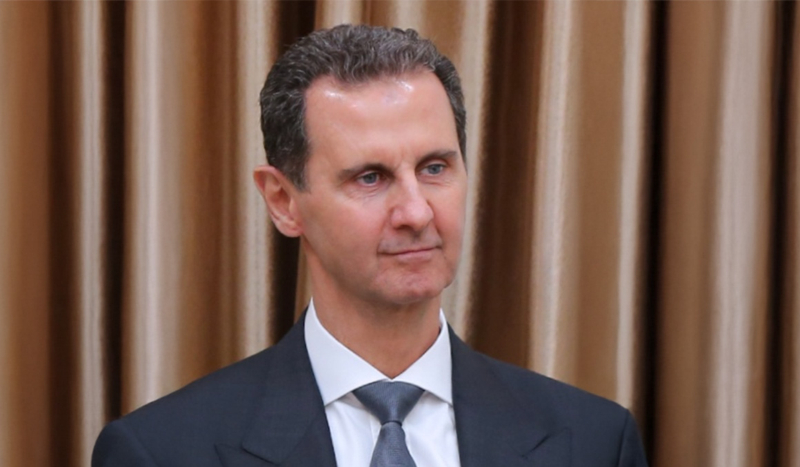
Khamenei.ir / Wikimedia Commons
CV NEWS FEED // In his first public statement since his government collapsed Dec. 8, Syrian President Bashar al-Assad denied that his departure from Syria was planned or signaled a voluntary relinquishment of power.
According to NDTV, Assad, speaking from Moscow, where he was relocated by Russia’s intervention, described his evacuation as a necessary response to the rapid advance of opposition forces and drone strikes that crippled his regime. He claimed that Syria is now “in the hands of terrorism,” characterizing the opposition’s offensive as a distortion of reality aimed at portraying terrorism as a “liberation revolution.”
>> IRISH BRANCH OF INTERNATIONAL CHARITY LAUNCHES URGENT CAMPAIGN FOR CHRISTIANS IN SYRIA <<
Assad, who took power in 2000 following the nearly 30-year rule of his father, Hafez al-Assad, faced the swift disintegration of his government as the opposition, led by Hayat Tahrir al-Sham (HTS) — which once operated as an Al-Qaeda affiliate — stormed into Damascus. The president revealed that he fled the capital Dec. 8 after overseeing combat operations in Latakia, where the Russian-controlled Khmeimim airbase was also targeted by drone strikes. As military positions collapsed and state institutions ground to a halt, Assad was evacuated to Russia at Moscow’s request.
Assad claimed in a statement shared on the Syrian presidency’s Telegram channel that his departure from Syria was unplanned, NDTV reported.
“At no point during these events did I consider stepping down or seeking refuge, nor was such a proposal made by any individual or party,” he said.
Instead, he described his evacuation as a tactical decision, coordinated with Russian forces, to preserve leadership amidst the chaos.
“As terrorism spread across Syria and ultimately reached Damascus on the evening of Saturday 7 December 2024, questions arose about the president’s fate and whereabouts. This occurred amidst a flood of misinformation and narratives far removed from the truth, aimed at recasting international terrorism as a liberation revolution for Syria,” Assad said in his statement.
“With no viable means of leaving the base, Moscow requested that the base’s command arrange an immediate evacuation to Russia on the evening of Sunday 8 December,” he said. “This took place a day after the fall of Damascus, following the collapse of the final military positions and the resulting paralysis of all remaining state institutions.”
Assad said that “at no point during these events” did he consider stepping down from the presidency or seeking refuge. He asserted that no individual or party suggested such proposals either.
“The only course of action was to continue fighting against the terrorist onslaught,” he said.
>> FALL OF SYRIAN REGIME MARKS DRAMATIC TURN FOR MIDDLE EAST, RAISES CONCERNS FOR CHRISTIANS <<
The once-unassailable grip of Assad’s regime collapsed under the weight of the HTS offensive Dec. 8, marking a significant shift in Syria’s political landscape after over two decades of his rule.
The fall of Bashar al-Assad’s regime in Syria has sparked cautious hope among Christians and other minorities for a more inclusive and democratic future. Fr. Bahjat Karakach, pastor of St. Francis of Assisi Church in Aleppo, described life under Assad as marked by “stagnation” and immense hardship. While acknowledging the challenges ahead, he expressed cautious optimism that the regime’s collapse could “unblock the political situation” and lead to a “new constitution that respects all Syrians.”
>> PARISH PRIEST CALLS FOR CONSTITUTION ‘FOR ALL SYRIANS EXHAUSTED’ BY THE FALLEN REGIME <<
Christians, who endured economic struggles and displacement under Assad, now hope to return and contribute as equal citizens in rebuilding Syria. Fr. Karakach noted to AsiaNews that recent actions by HTS have fostered hope. The group, he said, has demonstrated tolerance by returning confiscated properties and sending “strong messages of tolerance towards all minorities, including Christians.”

